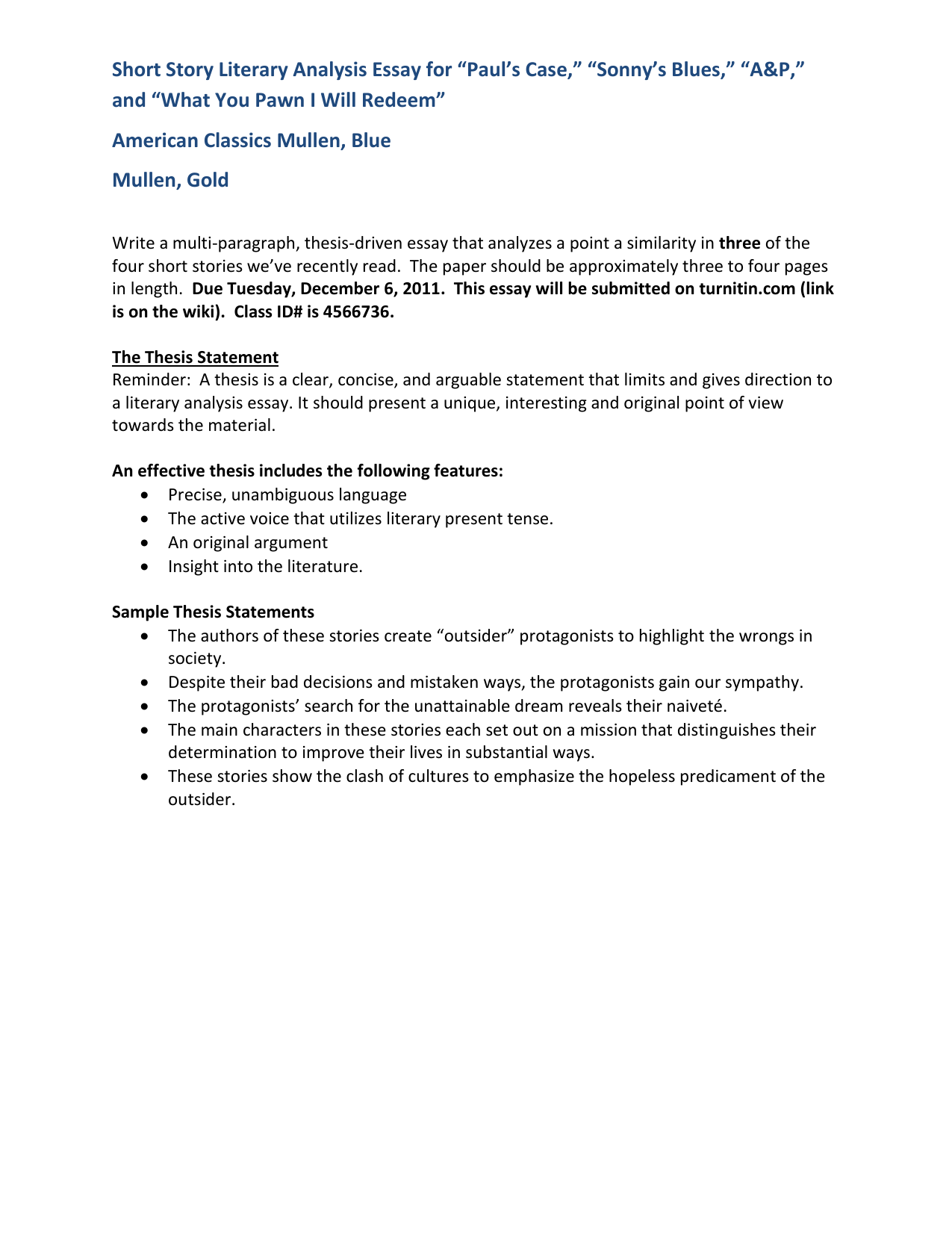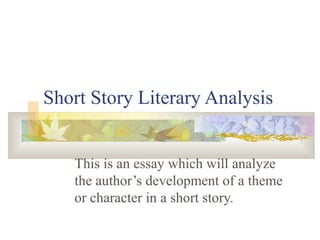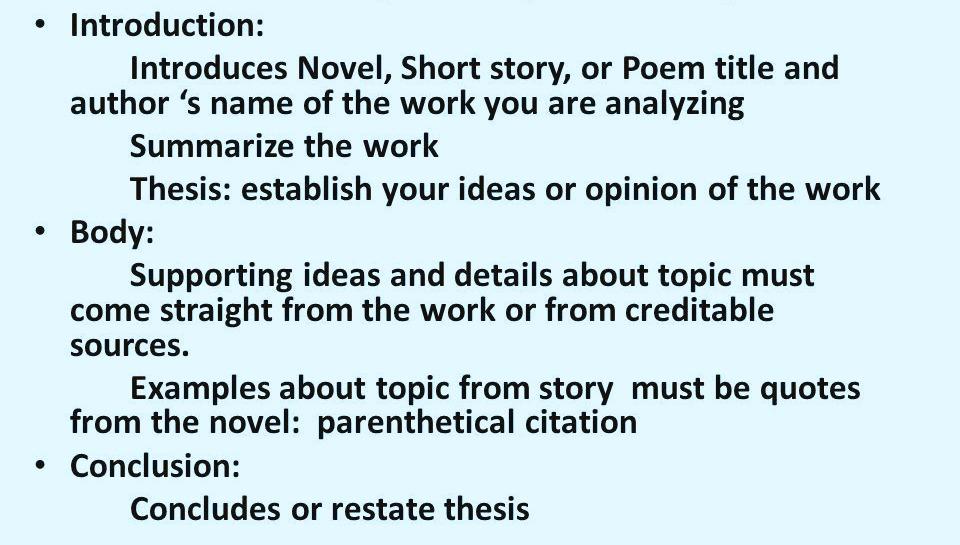A literary analysis is a critical examination and evaluation of a work of literature, such as a short story. It involves analyzing the elements of the work, including character, plot, setting, theme, and style, and considering how these elements contribute to the overall meaning and impact of the work.
For example, let's consider the short story "The Lottery" by Shirley Jackson. This story is about a small village that holds an annual lottery, in which the winner is stoned to death by the other villagers.
One aspect of the story that could be analyzed is the characters. The main character, Tessie Hutchinson, is a complex and dynamic character who initially seems to be a typical housewife, but as the story progresses, she becomes more and more distressed and rebellious as she realizes the true nature of the lottery. The other characters in the story, such as Old Man Warner and Mr. Summers, also reveal their true nature through their actions and words, and contribute to the overall sense of tension and unease in the story.
Another aspect of the story that could be analyzed is the setting. The story takes place in a small village on a summer day, and the descriptions of the setting contribute to the sense of tradition and routine that surrounds the lottery. The use of a small, tight-knit community as the setting also serves to heighten the sense of horror and betrayal when the villagers turn on one of their own.
The theme of the story could also be analyzed, with the most prominent theme being the dangers of blindly following tradition. The villagers in the story have been participating in the lottery for generations, and they continue to do so without questioning its purpose or morality. This ultimately leads to the tragic and violent conclusion of the story, as Tessie becomes the victim of the lottery.
Finally, the style of the story could be analyzed, including the use of imagery and symbolism. For example, the use of stones as the means of execution in the story can be seen as symbolic of the way in which the villagers blindly follow tradition and violence, even in the face of reason and humanity.
In conclusion, a literary analysis of "The Lottery" could focus on any or all of these elements, examining how they contribute to the overall meaning and impact of the story. By examining the characters, setting, theme, and style, a reader can gain a deeper understanding of the story and its themes, and can form a more informed and nuanced interpretation of its meaning.








